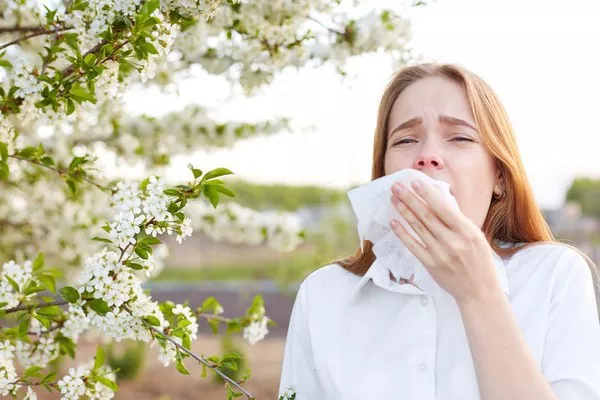As the seasons change, many individuals find themselves grappling with allergies, and the symptoms they bring can be both uncomfortable and disruptive. Allergy season, typically triggered by pollen from trees, grasses, and weeds, can result in sneezing, itchy eyes, congestion, and other bothersome symptoms. However, there are proactive steps you can take to minimize the impact of allergies on your daily life. In this article, we will explore what to do in allergy season to alleviate symptoms and enjoy the outdoors to the fullest.
Understanding Allergies and Allergy Seasons
Allergies are the body’s immune system’s response to substances that it perceives as threats, known as allergens. These allergens can vary widely, but during allergy season, the primary culprits are usually pollen grains from plants. When inhaled or exposed to these allergens, susceptible individuals may experience a range of symptoms, commonly referred to as hay fever or allergic rhinitis. These symptoms may include:
Sneezing
Runny or stuffy nose
Itchy or watery eyes
Coughing
Fatigue
Headache
Sore throat
Allergy seasons vary depending on the region and the types of plants in the area. Generally, tree pollen season occurs in the spring, grass pollen season in late spring and early summer, and weed pollen season in late summer and fall. However, these seasons can overlap, making it challenging for allergy sufferers to find relief.
What to Do in Allergy Season
Identify Your Allergens: Knowing your specific allergy triggers is the first step in managing allergy symptoms effectively. Consider consulting an allergist for testing to pinpoint the allergens that affect you the most.
Monitor Pollen Counts: Stay informed about local pollen counts by checking weather websites or mobile apps. High pollen counts often coincide with worsening allergy symptoms. On days when pollen counts are elevated, take extra precautions.
Plan Outdoor Activities Wisely: If possible, schedule outdoor activities during times of the day when pollen levels are lower. Pollen concentrations are typically highest in the morning and on windy days. Consider outdoor plans in the late afternoon or evening when pollen levels tend to decrease.
Use Allergy-Proof Bedding: Invest in allergen-proof pillow covers and mattress covers to reduce your exposure to allergens while you sleep. Wash bedding regularly in hot water to kill dust mites and remove pollen.
Keep Windows Closed: On high-pollen days, keep windows and doors closed to prevent allergens from entering your home. Use air conditioning with clean filters to maintain indoor air quality.
Use High-Efficiency Particulate Air (HEPA) Filters: Consider using HEPA filters in your home’s heating and cooling systems to trap airborne allergens effectively. Portable HEPA air purifiers can also be beneficial in bedrooms and common areas.
Practice Nasal Irrigation: Nasal irrigation with saline solutions, such as a neti pot or saline nasal spray, can help flush out pollen and soothe nasal passages.
Over-the-Counter Medications: Non-prescription antihistamines, decongestants, and nasal corticosteroids can provide relief from allergy symptoms. Consult with a healthcare professional before starting any medication regimen, especially if you have underlying health conditions or are taking other medications.
Prescription Medications: If over-the-counter medications are insufficient, your healthcare provider may prescribe stronger allergy medications or recommend immunotherapy (allergy shots) to desensitize your immune system to specific allergens.
Allergy-Proof Your Home: Minimize dust mites and other indoor allergens by regularly cleaning and vacuuming your home. Use a vacuum cleaner equipped with a HEPA filter to trap allergens.
Wear Protective Clothing: When spending time outdoors during allergy season, consider wearing long-sleeved shirts, pants, and a wide-brimmed hat to reduce direct contact with allergens.
Eye Protection: To protect your eyes from pollen, wear wraparound sunglasses or eyeglasses with side shields when outdoors.
Stay Hydrated: Staying well-hydrated can help thin mucus secretions, making it easier to clear your airways and reducing congestion.
Avoid Outdoor Chores: If possible, delegate outdoor chores like mowing the lawn or gardening to someone who doesn’t suffer from allergies. If you must do these tasks, wear a mask and eye protection.
Allergy Shots (Immunotherapy): In cases of severe or persistent allergies that don’t respond well to other treatments, allergists may recommend immunotherapy, a series of allergy shots that gradually desensitize your immune system to allergens.
Alternative Therapies: Some people find relief from allergy symptoms through complementary and alternative therapies like acupuncture, herbal remedies, and acupuncture. Be sure to consult with a healthcare professional before trying any alternative treatments.
Conclusion
Allergy season can be challenging, but with the right strategies and proactive measures, you can minimize its impact on your daily life. Identifying your specific allergens, monitoring pollen counts, and taking steps to reduce exposure to allergens indoors and outdoors are essential components of allergy management. Additionally, consulting with healthcare professionals and considering medication or immunotherapy if needed can provide long-term relief.
Remember that allergy management is a personalized journey, and what works best for one person may not be the same for another. By staying informed, seeking professional guidance, and implementing the strategies mentioned above, you can navigate allergy season with greater comfort and enjoy the beauty of the outdoors without unnecessary suffering.


